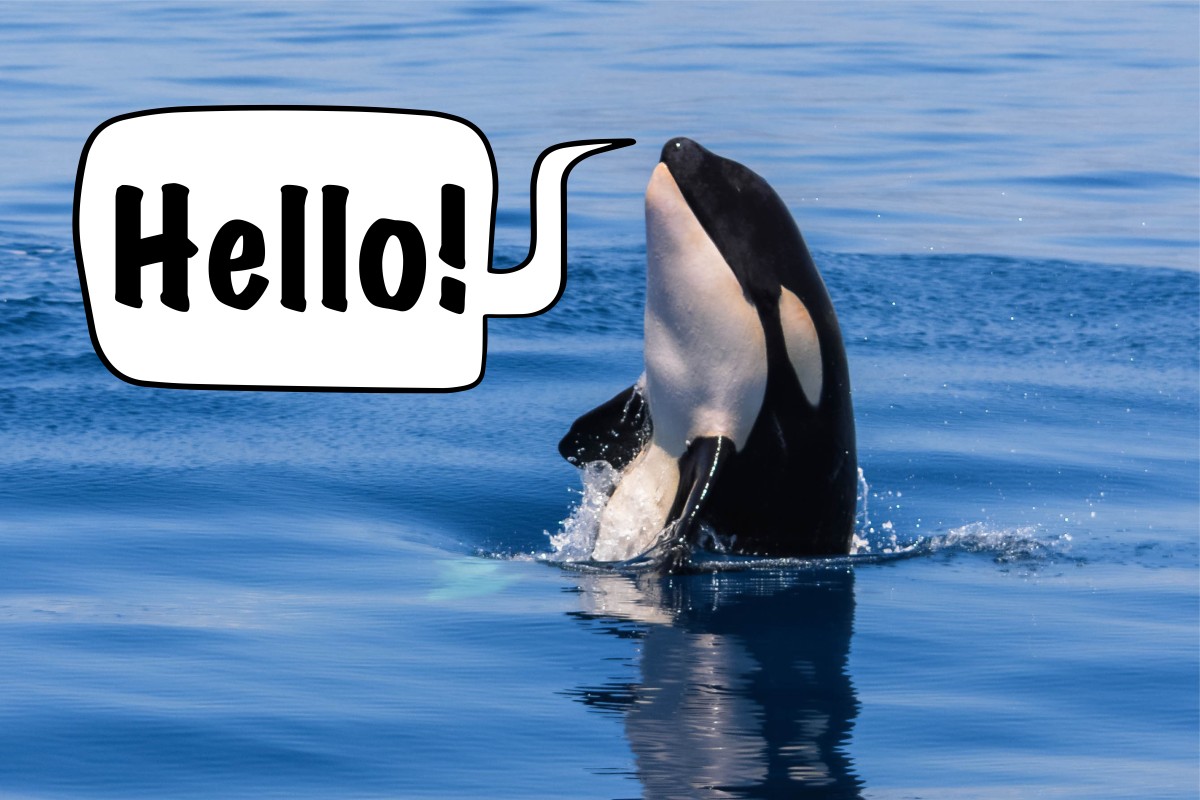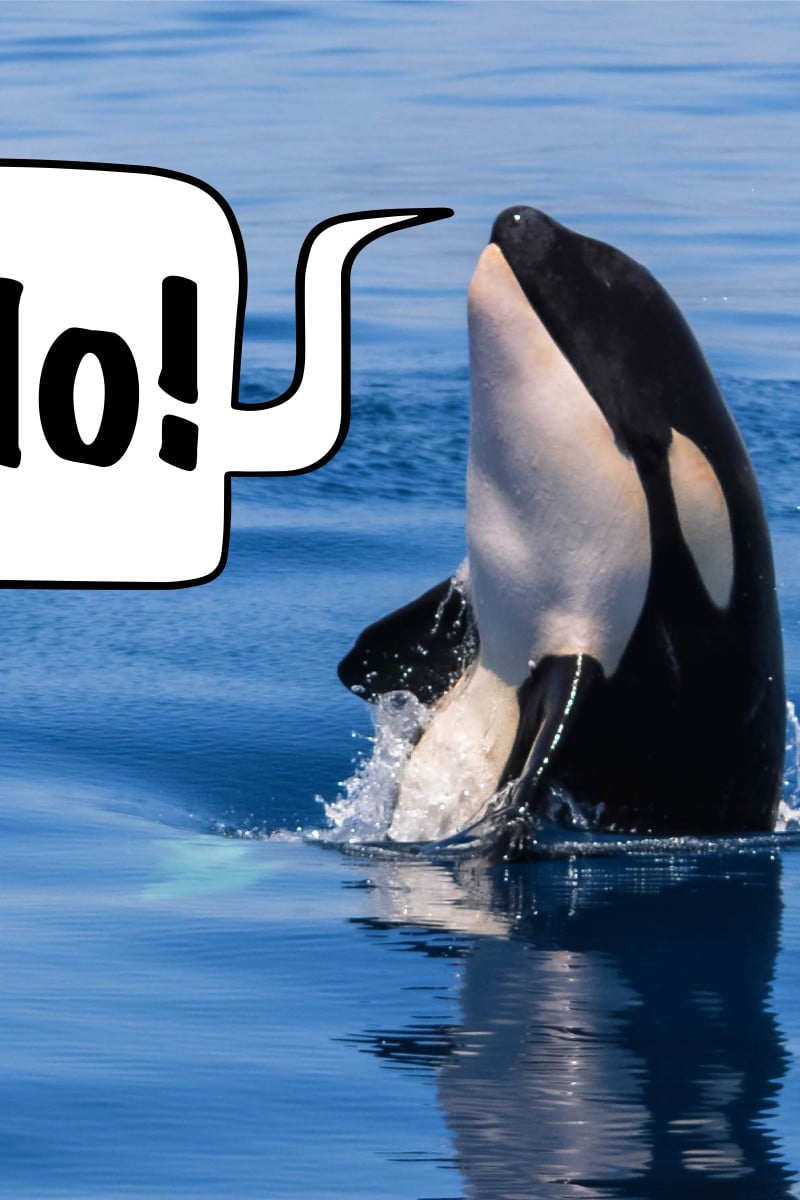
High-pitched, eerie and yet distinct, the sound of a voice calling the name “Amy” is unmistakable. But this isn’t a human cry – it’s the voice of a killer whale called Wikie.
New research shows that orcas, also known as killer whales, are able to copy human speech, in some cases at the first attempt, saying words such as “hello”, “one, two” and “bye bye”.
The study also shows that the whales are able to copy unfamiliar sounds made by other orcas – including a sound similar to blowing a raspberry.
Scientists say the discovery helps to shed light on how different pods of wild killer whales have ended up with distinct dialects, adding weight to the idea that they are the result of imitation between orcas. The whales are already known for their ability to copy the movements of other orcas, with some reports suggesting they can also mimic the sounds of bottlenose dolphins and sea lions.
“We wanted to see how flexible a killer whale can be in copying sounds,” said Josep Call, professor in evolutionary origins of mind at the University of St Andrews and a co-author of the study. “We thought what would be really convincing is to present them with something that is not in their repertoire – and in this case ‘hello’ [is] not what a killer whale would say.”
Wikie is not the first animal to have copied human words: dolphins, elephants, parrots, orangutans and even beluga whales have all been captured mimicking our words, although they don't have vocal chords like we do. Noc, the beluga whale, used his nose while Koshik, an Indian elephant jammed his trunk in his mouth, which allowed him to say Korean words ranging from “hello” to “sit down” and “no”.
But researchers very few animals can mimic human speech, with brain pathways and the needed physical organs both thought to decide whether it is possible.
“That is what makes it even more impressive," said Call. Even though their bodies are so different, they can still make a sound that comes close to what another species, in this case humans, can produce.
But he said orcas wouldn't understand the meaning of the words they copy. “We have no evidence that they understand what their ‘hello’ stands for,” he said. He said the study shed light on orca behaviour.
“I think here we have the first evidence that killer whales may be learning sounds by vocal imitation, and this is something that could be the basis of the dialects we observe in the wild – it is plausible,” said Call, noting that to further test the idea, trials would have to be carried out with wild orcas.
Diana Reiss, an expert in dolphin communication and professor of psychology at Hunter College, City University of New York, welcomed the research, noting that it extends our understanding of orcas’ vocal abilities, with Wikie able to apply a “copy” command learned for imitation of actions to imitation of sounds.
Dr Irene Pepperberg, an expert in parrot cognition at Harvard University, also described the study as exciting, but said: “A stronger test would have been whether the various sounds produced could be correctly classified by humans without the models present for comparison
